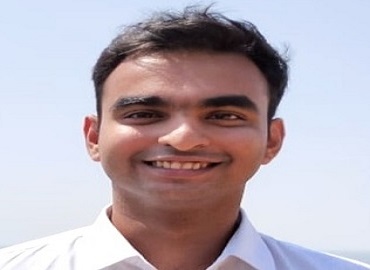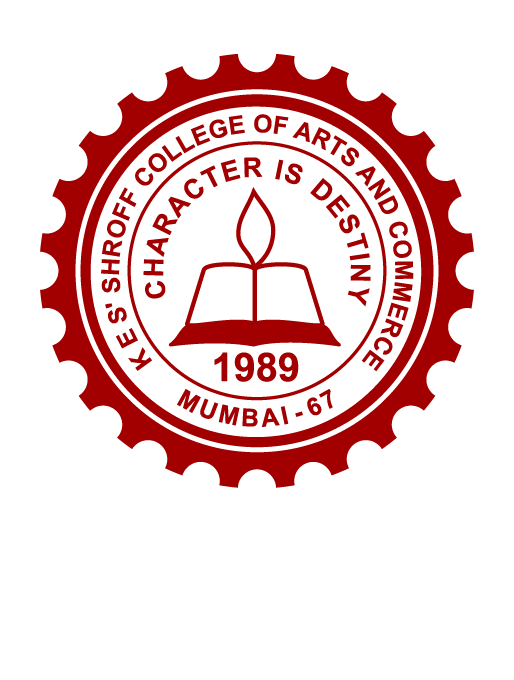University Affiliation
University of MumbaiDuration of Program
2 Years Full TimeImportant Dates
Last Date to Apply : As per University ScheduleAbout Programme
The two-year M.A. Communication and Journalism programme in the best interest of the students. It imbibes a Learning Outcome-based Curriculum Framework (LOCF) for its programme. In addition to covering key concepts in communication and journalism, the department is directly responsible for ensuring high academic standards of qualitative and quantitative teaching and research techniques.
The LOCF approach is envisioned to provide a focused, outcome-based syllabus at the Post- graduate level with an agenda to structure the teaching-learning experiences in a more student-centric manner. The LOCF approach has been adopted to strengthen students’ experiences as they engage themselves in the programme of their choice and will prepare them for academia and employability.

Why this Programme
The Post Graduate Programme in M.A. Communication and Journalism offer students core papers that will help to build their foundation in the specialized area of communication and journalism. In addition, it will enable students to pursue an area of their interest in their chosen field. The contents of each course have been carefully designed to prepare students with the knowledge and skill sets that will make them industry ready, enable them to solve problems and encourage analytical and innovative thinking.
PEO 1: To have strong multidisciplinary academic and practical foundation in communication, media and film production.
PEO 2: To integrate theory and research through deliberations on practical applications of concepts.
PEO 3: To have sharpened ability to converse critically and innovatively about real life issues.
PEO 4: To be able to demonstrate skill sets as per industry requirements in respective fields.
PEO 5: To be able to engage in discussion and reflect human values.
PEO 6: To be able to synthesize aesthetic, social and cultural domains of knowledge.
After successful completion of the two years of the M.A. (CJ) programme, the postgraduate will be able to
PSO 1: Demonstrate various skills set with respect to disciplines of Arts, Media (Communication & Journalism), and OTT platforms.
PSO 2: Exhibit skills of effective communication and research aptitude in Advertising and Journalism.
PSO 3: Use analytical and research tools of media marketing.
PSO 4: Utilize information technology tools pertaining to media and ad production.
PSO 5: Make use of practical skills in the field of brand building, ad design, copy writing and agency management.
PSO 6: Understand the importance of ethical values, social, environmental, human rights and other critical issues faced by humanity at the local, national and international level and manifest them with Communication and Journalism.
- Reporting
- Writing
- Film Industry
- Television Industry
- Public Relations
- Digital Marketing
Course Curriculum
Semester 1
- Communication Theory
- Media Economics
- Reporting and Editing
- Media Criticism
Semester 2
- Introduction to Television Studies
- Introduction to Film Studies
- Introduction to Media Research
- Ethics, Constitution and Media Laws
Semester 3
Compulsory Courses
- Social Science Research Design
- Culture Studies and Media
Discipline Specific Electives (Choose any 2 Courses)
- Media Management
- Media Advocacy
- Video Games and Media
- Multimedia Production
Semester 4
Compulsory Courses
- Public Relations in the Private Public Sector
- Dissertation
Discipline Specific Electives (Choose any 2 Courses)
- Digital Media Marketing
- Political Communication
- Sports Journalism
- Financial Journalism
Placements Partners
Testimonials

Jahnvi Indravadan Bhavsar
Alumni“The First Step Towards Getting Somewhere is to Decide that you are not going to stay where you are” I would Like to express my gratitude towards our Principal Madam, Vice Principal Sir, Co-ordinator, and the entire faculty of KES Shroff College for helping me reach where I am now.nd I feel so proud when I say I was a student of KES Shroff College. Thank you for making me the person I am today. I have learned many things whether it was practical or theoretical knowledge, the College always supported me and other students and gave us the platform to participate in a number of activities and exploring ourselves. Professors of KES Shroff College were so kind and calm and always ready to support their students any time and helped them stand on their own feet . I also got the opportunity to be the Secretary of the Banca Association. I will never ever forget those moments which I have spent in the BANCA Association where we had lots of fun and at the same time organized events. Really missing my college days.

Pratik Pandya
AlumniMy three years degree course in the Banking and Finance were among the best years of my life. My experience at KES Shroff College not only made me a better person but also prepared me in unpredictable ways for my career. Through workshops with incredibly supportive classmates, and professors who were nothing short of champions, I was challenged to discover a voice I didn’t know I had. That voice has played a central role in my work. Having been shaped in part by the collegial and creative, yet rigorous, environment at KESSC, I found myself able to communicate, innovate, and collaborate in ways that enabled me to build a successful rewarding career. It was a wonderful time in my life, and the best educational experience I’ve had.

Mohini Yashwant Patil
AlumniBeing a part of KES Shroff College has been a wonderful experience. Here I learned success is a journey and not a destination. Along with academics, a lot of different activities on campus allowed me to polish my talents and have an overall development. I am grateful to Principal Bhushan Ma'am and all Professors who stood by me and assisted me in making me what I am today personally and where I am today professionally. Proud KESSC student

Viral Pravin Kava
AlumniBeing a student of KES Shroff College was itself an immense pleasure and a feeling of pride for all the students. I was so lucky to be around such renowned faculty who showered their love and knowledge on me. It's not the only place to receive academic knowledge but the overall development of a student. I must say today I have transformed into a better person after my graduation, the sense of understanding and maturity has come, where values are taught and you realize you have come an extra mile ahead to face the challenges and rat race of the world.

Chinmay Prabhu
AlumniI've never had so much fun as I did being a student at KES Shroff college. So many extra circular activities happening regularly, I always wanted to participate in everything. Along with the extra circular, the teaching faculty at the college is truly amazing as well. They would make sure that every student present is understanding the topic being taught. Overall, it's not just a college but rather a complete experience. The teachers, consider student's points of view and make sure the students are not being overburdened at any moment.
How to Apply
The admission procedure usually starts in the month of June after the results of undergraduate courses are declared.
- Fill the Pre-enrollment form of the University of Mumbai through the University portal (mum.digitaluniversity.ac). Select the autonomous option for MA (Communication & Journalism).
- Fill online admission form on kesshroffcollege.com
- Upload a copy of the pre-enrollment form, Graduation mark sheet/digital result,HSC mark sheet/digital result, caste/reservation certificate if applicable, and E-Suvidha ticket.
- On the declaration of merit list (first then second then third if applicable) pay the fees along with submission of the documents such as Undertaking regarding admission confirmation, SSC(X marksheet), Leaving Certificate, Adhar card, scanned copy of Cheque book leaflet/bank account details and transfer certificate in case the student is from outside Maharashtra.
- For further details and to know more about the college visit kesshroffcollege.com.
A candidate for being eligible for admission to the course leading to the degree of Master of Arts (Communication and Journalism) must have passed the examination for the degree of Bachelor from any discipline of this University or bachelor’s degree of another University recognized as equivalent thereto.
Total no. of Seats: 60
Reservation of Seats: Reservations are as per the Government policy.
Fees: As prescribed by the University of Mumbai. The details have been mentioned on the college Notice board and the College website http://www. kesshroffcollege.com
Duration of Programme: 4 Semesters spread over 2 years. The programme shall consist of 15 Theory papers and Project work
Enforcement of Attendance:
Our college is a pioneer institute in introducing the computerized attendance system. The computerized defaulters’ lists are displayed division wise regularly at the end of every month on the Students Notice Board. The students failing to fulfill the required attendance shall be DETAINED and shall not be permitted to take the Annual / Board examination. Warning letters from the Principal are sent to parents of the defaulting students. The letters are given to the concerned students by the class teachers in the classrooms. The students must hand over these warning letters to the parents. Students should note that fulfilling the attendance requirement alone will not qualify them to appear for the examination. Their academic performance should also be to the satisfaction of the principal.
General Rules & Regulations:
- Every student should obtain an ID card and show at the entry
- Students should not loiter in the corridors when the lectures are engaged
- Giving proxy attendance is a serious act of indiscipline
- Students applying for certificates/testimonials and attestation should first contact the college office
- Ragging is strictly prohibited on the college premises
- The use of mobile phones inside the college is strictly prohibited. If caught using a cell phone it is confiscated for a period of 1 year
Punitive Measures:
- Warning
- Cancellation of admission
- Refusal to grant admission in future
- Withholding or withdrawing of University exam form
- Expulsion / rustication from college
- Fine not exceeding Rs. 300
- Non-refund of fees and deposits
- Suspension for a specified period




























